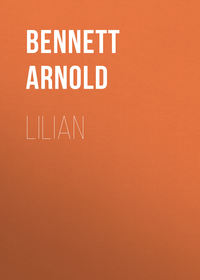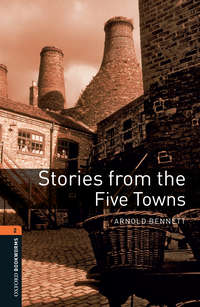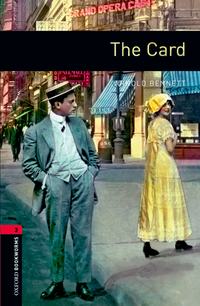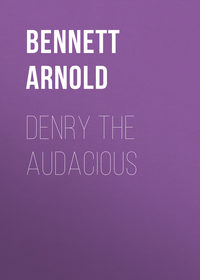 полная версия
полная версияA Great Man: A Frolic
'Bless the girl! Why doesn't she answer the door?' Aunt Annie whispered to herself, listening hard.
A third time the bell rang, and Aunt Annie, anathematizing the whole race of servants, got up, put the washing-book on the dressing-table, lighted the gas and turned it low, and descended to answer the door in person and to behead Sarah.
More than an hour elapsed before either sister re-entered Henry's room – events on the ground-floor had been rather exciting – and then they appeared together, bearing a bird, and some mince-tarts on a plate, and a card. Henry was wide awake.
'This is a surprise, dear,' began Mrs. Knight. 'Just listen: "With Sir George Powell's hearty greetings and best wishes for a speedy recovery!" A turkey and six mince-tarts. Isn't it thoughtful of him?'
'It's just like the governor,' said Henry, smiling, and feeling the tenderness of the turkey.
'He is a true gentleman,' said Aunt Annie.
'And we've sent round to the doctor to ask, and he says there's no harm in your having half a mince-tart; so we've warmed it. And you are to have a slice off the breast of the turkey to-morrow.'
'Good!' was Henry's comment. He loved a savoury mouthful, and these dainties were an unexpected bliss, for the ladies had not dreamt of Christmas fare in the sad crisis, even for themselves.
Aunt Annie, as if struck by a sudden blow, glanced aside at the gas.
'I could have been certain I left the gas turned down,' she remarked.
'I turned it up,' said Henry.
'You got out of bed! Oh, Henry! And your temperature was a hundred and two only the day before yesterday!'
'I thought I'd begin that thing – just for a lark, you know,' he explained.
He drew from under the bed-clothes the household washing-book. And there, nearly at the top of a page, were Aunt Annie's last interrupted strokes:
'2 Ch – 'and underneath:
'Love in Babylon'and the commencement of the tale. The marvellous man had covered nine pages of the washing-book.
Within twenty-four hours, not only Henry, but his mother and aunt, had become entirely absorbed in Henry's tale. The ladies wondered how he thought of it all, and Henry himself wondered a little, too. It seemed to 'come,' without trouble and almost without invitation. It cost no effort. The process was as though Henry acted merely as the amanuensis of a great creative power concealed somewhere in the recesses of his vital parts. Fortified by two halves of a mince-tart and several slices of Sir George's turkey, he filled the washing-book full up before dusk on Christmas Day; and on Boxing Day, despite the faint admiring protests of his nurses, he made a considerable hole in a quire of the best ruled essay-paper. Instead of showing signs of fatigue, Henry appeared to grow stronger every hour, and to revel more and more in the sweet labour of composition; while the curiosity of the nurses about the exact nature of what Henry termed the dénouement increased steadily and constantly. The desires of those friends who had wished a Happy Christmas to the household were generously gratified.
It was a love tale, of course. And it began thus, the first line consisting of a single word, and the second of three words:
'Babylon!
'And in winter!
'The ladies' waiting-room on the arrival platform of one of our vast termini was unoccupied save for the solitary figure of a young and beautiful girl, who, clad in a thin but still graceful costume, crouched shivering over the morsel of fire which the greed of a great company alone permitted to its passengers. Outside resounded the roar and shriek of trains, the ceaseless ebb and flow of the human tide which beats for ever on the shores of modern Babylon. Enid Anstruther gazed sadly into the embers. She had come to the end of her resources. Suddenly the door opened, and Enid looked up, naturally expecting to see one of her own sex. But it was a man's voice, fresh and strong, which exclaimed: "Oh, I beg pardon!" The two glanced at each other, and then Enid sank backwards.'
Such were the opening sentences of Love in Babylon.
Enid was an orphan, and had come to London in order to obtain a situation in a draper's shop. Unfortunately, she had lost her purse on the way. Her reason for sinking back in the waiting-room was that she had fainted from cold, hunger, and fatigue. Thus she and the man, Adrian Tempest, became acquainted, and Adrian's first gift to her was seven drops of brandy, which he forced between her teeth. His second was his heart. Enid obtained a situation, and Adrian took her to the Crystal Palace one Saturday afternoon. It was a pity that he had not already proposed to her, for they got separated in the tremendous Babylonian crowd, and Enid, unused to the intricacies of locomotion in Babylon, arrived home at the emporium at an ungodly hour on Sunday morning. She was dismissed by a proprietor with a face of brass. Adrian sought her in vain. She sought Adrian in vain – she did not know his address. Thenceforward the tale split itself into two parts: the one describing the life of Adrian, a successful barrister, on the heights of Babylon, and the other the life of Enid, reduced to desperate straits, in the depths thereof. The contrasts were vivid and terrific.
Mrs. Knight and Aunt Annie could not imagine how Henry would bring the two lovers, each burning secretly the light torch of love in Babylon, together again. But Henry did not hesitate over the problem for more than about fifty seconds. Royal Academy. Private View. Adrian present thereat as a celebrity. Picture of the year, 'The Enchantress.' He recognises her portrait. She had, then, been forced to sell her beauty for eighteenpence an hour as an artist's model. To discover the artist and Enid's address was for Adrian the work of a few minutes.
This might have finished the tale, but Henry opined that the tale was a trifle short. As a fact, it was. He accordingly invented a further and a still more dramatic situation. When Adrian proposed to Enid, she conscientiously told him, told him quietly but firmly, that she could not marry him for the reason that her father, though innocent of a crime imputed to him, had died in worldly disgrace. She could not consent to sully Adrian's reputation. Now, Adrian happened to be the real criminal. But he did not know that Enid's father had suffered for him, and he had honestly lived down that distant past. 'If there is a man in this world who has the right to marry you,' cried Adrian, 'I am that man. And if there is a man in this world whom you have the right to spurn, I am that man also.' The extreme subtlety of the thing must be obvious to every reader. Enid forgave and accepted Adrian. They were married in a snowy January at St. Paul's, Knightsbridge, and the story ended thus:
'Babylon in winter.
'Babylon!'
Henry achieved the entire work in seven days, and, having achieved it, he surveyed it with equal pride and astonishment. It was a matter of surprise to him that the writing of interesting and wholesome fiction was so easy. Some parts of the book he read over and over again, for the sheer joy of reading.
'Of course it isn't good enough to print,' he said one day, while sitting up in the arm-chair.
'I should think any publisher would be glad to print it,' said his mother. 'I'm not a bit prejudiced, I'm sure, and I think it's one of the best tales I ever read in all my life.'
'Do you really?' Henry smiled, his natural modesty fighting against a sure conviction that his mother was right.
Aunt Annie said little, but she had copied out Love in Babylon in her fine, fair Italian hand, keeping pace day by day with Henry's extraordinary speed, and now she accomplished the transcription of the last pages.
The time arrived for Henry to be restored to a waiting world. He was cured, well, hearty, vigorous, radiant. But he was still infected, isolate, one might almost say taboo; and everything in his room, and everything that everyone had worn while in the room, was in the same condition. Therefore the solemn process, rite, and ceremony of purification had to be performed. It began upon the last day of the old year at dusk.
Aunt Annie made a quantity of paste in a basin; Mrs. Knight bought a penny brush; and Henry cut up a copy of the Telegraph into long strips about two inches wide. The sides and sash of the window were then hermetically sealed; the register of the fireplace was closed, and sealed also. Clothes were spread out in open order, the bed stripped, rugs hung over chairs.
'Henry's book?' Mrs. Knight demanded.
'Of course it must be disinfected with the other things,' said Aunt Annie.
'Yes, of course,' Henry agreed.
'And it will be safer to lay the sheets separately on the floor,' Aunt Annie continued.
There were fifty-nine sheets of Aunt Annie's fine, finicking caligraphy, and the scribe and her nephew went down on their knees, and laid them in numerical sequence on the floor. The initiatory 'Babylon' found itself in the corner between the window and the fireplace beneath the dressing-table, and the final 'Babylon' was hidden in gloomy retreats under the bed.
Then Sarah entered, bearing sulphur in a shallow pan, and a box of matches. The paste and the paste-brush and the remnants of the Telegraph were carried out into the passage. Henry carefully ignited the sulphur, and, captain of the ship, was the last to leave. As they closed the door the odour of burning, microbe-destroying sulphur impinged on their nostrils. Henry sealed the door on the outside with 'London Day by Day,' 'Sales by Auction,' and a leading article or so.
'There!' said Henry.
All was over.
At intervals throughout the night he thought of the sanative and benign sulphur smouldering, smouldering always with ghostly yellow flamelets in the midst of his work of art, while the old year died and the new was born.
CHAPTER IX
SPRING ONIONS
The return to the world and to Powells, while partaking of the nature of a triumph, was at the same time something of a cold, fume-dispersing, commonsense-bestowing bath for Henry. He had meant to tell Sir George casually that he had taken advantage of his enforced leisure to write a book. 'Taken advantage of his enforced leisure' was the precise phrase which Henry had in mind to use. But, when he found himself in the strenuous, stern, staid, sapient and rational atmosphere of Powells, he felt with a shock of perception that in rattling off Love in Babylon he had been guilty of one of those charming weaknesses to which great and serious men are sometimes tempted, but of which great and serious men never boast. And he therefore confined his personal gossip with Sir George to the turkey, the mince-tarts, and the question of contagion. He plunged into his work with a feeling akin to dignified remorse, and Sir George was vehemently and openly delighted by the proofs which he gave of undiminished loyalty and devotion.
Nevertheless Henry continued to believe in the excellence of his book, and he determined that, in duty to himself, his mother and aunt, and the cause of wholesome fiction, he must try to get it published. From that moment he began to be worried, for he had scarcely a notion how sagaciously to set about the business. He felt like a bachelor of pronounced views who has been given a baby to hold. He knew no one in the realms of literature, and no one who knew anyone. Sir George, warily sounded, appeared to be unaware that such a thing as fiction existed. Not a soul at the Polytechnic enjoyed the acquaintance of either an author or a publisher, though various souls had theories about these classes of persons. Then one day a new edition of the works of Carlyle burst on the world, and Henry bought the first volume, Sartor Resartus, a book which he much admired, and which he had learnt from his father to call simply and familiarly —Sartor. The edition, though inexpensive, had a great air of dignity. It met, in short, with Henry's approval, and he suddenly decided to give the publishers of it the opportunity of publishing Love in Babylon. The deed was done in a moment. He wrote a letter explaining the motives which had led him to write Love in Babylon, and remarked that, if the publishers cared for the story, mutually satisfactory terms might be arranged later; and Aunt Annie did Love in Babylon up in a neat parcel. Henry was in the very act of taking the parcel to the post, on his way to town, when Aunt Annie exclaimed:
'Of course you'll register it?'
He had not thought of doing so, but the advisability of such a step at once appealed to him.
'Perhaps I'd better,' he said.
'But that only means two pounds if it's lost, doesn't it?' Mrs. Knight inquired.
Henry nodded and pondered.
'Perhaps I'd better insure it,' he suggested.
'If I were you, I should insure it for a hundred pounds,' said Aunt Annie positively.
'But that will cost one and a penny,' said Henry, who had all such details by heart. 'I could insure it for twenty pounds for fivepence.'
'Well, say twenty pounds then,' Aunt Annie agreed, relenting.
So he insured Love in Babylon for twenty pounds and despatched it. In three weeks it returned like the dove to the ark (but soiled), with a note to say that, though the publishers' reader regarded it as promising, the publishers could not give themselves the pleasure of making an offer for it. Thenceforward Henry and the manuscript suffered all the usual experiences, and the post-office reaped all the usual profits. One firm said the story was good, but too short. ('A pitiful excuse,' thought Henry. 'As if length could affect merit.') Another said nothing. Another offered to publish it if Henry would pay a hundred pounds down. (At this point Henry ceased to insure the parcel.) Another sent it back minus the last leaf, the matter of which Henry had to reinvent and Aunt Annie to recopy. Another returned it insufficiently stamped, and there was fourpence to pay. Another kept it four months, and disgorged it only under threat of a writ; the threat was launched forth on Powells' formidable notepaper. At length there arrived a day when even Henry's pertinacity was fatigued, and he forgot, merely forgot, to send out the parcel again. It was put in a drawer, after a year of ceaseless adventures, and Mrs. Knight and Aunt Annie discreetly forbore to mention it. During that year Henry's opinion on his work had fluctuated. There had been moments, days perhaps, of discouragement, when he regarded it as drivel, and himself as a fool – in so far, that is, as he had trafficked with literature. On the other hand, his original view of it reasserted itself with frequency. And in the end he gloomily and proudly decided, once and for all, that the Stream of Trashy Novels Constantly Poured Forth by the Press had killed all demand for wholesome fiction; he came reluctantly to the conclusion that modern English literature was in a very poor way. He breathed a sigh, and dismissed the episode utterly from his mind.
And Love in Babylon languished in the drawer for three months.
Then, upon an April morning, the following telegram was received at Dawes Road, Fulham: 'Please bring manuscript me immediately top left take cab Henry.'
Mrs. Knight was alone in the house with Sarah when the imperious summons of the telegraph-boy and the apparition of the orange envelope threw the domestic atmosphere into a state of cyclonic confusion. Before tearing the envelope she had guessed that Aunt Annie had met with an accident, that Henry was dead, and that her own Aunt Eliza in Glossop had died without making a will; and these imaginings had done nothing to increase the efficiency of her intellectual powers. She could not read sense into the message, not even with the aid of spectacles and Sarah.
Happily Aunt Annie returned, with her masculine grasp of affairs.
'He means Love in Babylon,' said Aunt Annie. 'It's in the top left-hand drawer of his desk. That's what he means. Perhaps I'd better take it. I'm ready dressed.'
'Oh yes, sister,' Mrs. Knight replied hastily. 'You had better take it.'
Aunt Annie rang the bell with quick decision.
'Sarah,' she said, 'run out and get me a cab, a four-wheeler. You understand, a four-wheeler.'
'Yes'm. Shall I put my jacket on, mum?' Sarah asked, glancing through the window.
'No. Go instantly!'
'Yes'm.'
'I wonder what he wants it for,' Aunt Annie remarked, after she had found the manuscript and put it under her arm. 'Perhaps he has mentioned it to Sir George, and Sir George is going to do something.'
'I thought he had forgotten all about it,' said Mrs. Knight. 'But he never gives a thing up, Henry doesn't.'
Sarah drove dashingly up to the door in a hansom.
'Take that back again,' commanded Aunt Annie, cautiously putting her nose outside the front-door. It was a snowy and sleety April morning, and she had already had experience of its rigour. 'I said a four-wheeler.'
'Please'm, there wasn't one,' Sarah defended herself.
'None on the stand, lady,' said the cabman brightly. 'You'll never get a four-wheeler on a day like this.'
Aunt Annie raised her veil and looked at her sister. Like many strong-minded and vigorous women, she had a dislike of hansoms which amounted to dread. She feared a hansom as though it had been a revolver – something that might go off unexpectedly at any moment and destroy her.
'I daren't go in that,' she admitted frankly. She was torn between her allegiance to the darling Henry and her fear of the terrible machine.
'Suppose I go with you?' Mrs. Knight suggested.
'Very well,' said Aunt Annie, clenching her teeth for the sacrifice.
Sarah flew for Mrs. Knight's bonnet, fur mantle, gloves, and muff; and with remarkably little delay the sisters and the manuscript started. First they had the window down because of the snow and the sleet; then they had it up because of the impure air; and lastly Aunt Annie wedged a corner of the manuscript between the door and the window, leaving a slit of an inch or so for ventilation. The main body of the manuscript she supported by means of her muff.
Alas! her morbid fear of hansoms was about to be justified – at any rate, justified in her own eyes. As the machine was passing along Walham Green, it began to overtake a huge market-cart laden, fraught, and piled up with an immense cargo of spring onions from Isleworth; and just as the head of the horse of the hansom drew level with the tail of the market-cart, the off hind wheel of the cart succumbed, and a ton or more of spring onions wavered and slanted in the snowy air. The driver of the hansom did his best, but he could not prevent his horse from premature burial amid spring onions. The animal nobly resisted several hundredweight of them, and then tottered and fell and was lost to view under spring onions. The ladies screamed in concert, and discovered themselves miraculously in the roadway, unhurt, but white and breathless. A constable and a knife-grinder picked them up.
The accident was more amusing than tragic, though neither Mrs. Knight nor Aunt Annie was capable of perceiving this fact. The horse emerged gallantly, unharmed, and the window of the hansom was not even cracked. The constable congratulated everyone and took down the names of the two drivers, the two ladies, and the knife-grinder. The condition of the weather fortunately, militated against the formation of a large crowd.
Quite two minutes elapsed before Aunt Annie made the horrible discovery that Love in Babylon had disappeared. Love in Babylon was smothered up in spring onions.
'Keep your nerve, madam,' said the constable, seeing signs of an emotional crisis, 'and go and stand in that barber's doorway – both of you.'
The ladies obeyed.
In due course Love in Babylon was excavated, chapter by chapter, and Aunt Annie held it safely once more, rumpled but complete.
By the luckiest chance an empty four-wheeler approached.
The sisters got into it, and Aunt Annie gave the address.
'As quick as you can,' she said to the driver, 'but do drive slowly.'
CHAPTER X
MARK SNYDER
Three-quarters of an hour later Henry might have been seen – in fact, was seen by a number of disinterested wayfarers – to enter a magnificent new block of offices and flats in Charing Cross Road. Love in Babylon was firmly gripped under his right arm. Partly this strange burden and partly the brilliant aspect of the building made him feel self-conscious and humble and rather unlike his usual calm self. For, although Henry was accustomed to offices, he was not accustomed to magnificent offices. There are offices in Lincoln's Inn Fields, offices of extreme wealth, which, were they common lodging-houses, would be instantly condemned by the County Council. Powells was such a one – and Sir George had a reputed income of twenty thousand a year. At Powells the old Dickensian tradition was kept vigorously alive by every possible means. Dirt and gloom were omnipresent. Cleanliness and ample daylight would have been deemed unbusinesslike, as revolutionary and dangerous as a typewriter. One day, in winter, Sir George had taken cold, and he had attributed his misfortune, in language which he immediately regretted, to the fact that 'that d – d woman had cleaned the windows' – probably with a damp cloth. 'That d – d woman' was the caretaker, a grey-haired person usually dressed in sackcloth, who washed herself, incidentally, while washing the stairs. At Powells, nothing but the stairs was ever put to the indignity of a bath.
That Henry should be somewhat diffident about invading Kenilworth Mansions was therefore not surprising. He climbed three granite steps, passed through a pair of swinging doors, traversed eight feet of tesselated pavement, climbed three more granite steps, passed through another pair of swinging doors, and discovered himself in a spacious marble hall, with a lift-cabinet resembling a confessional, and broad stairs behind curving up to Paradise. On either side of him, in place of priceless works by old masters, were great tablets inscribed with many names in gold characters. He scanned these tablets timidly, and at length found what he wanted, 'Mark Snyder, Literary Agent,' under the heading 'Third Floor.' At the same moment a flunkey in chocolate and cream approached him.
'Mr. Snyder?' asked Henry.
'Third-floor, left,' pronounced the flunkey, thus giving the tablets the force of his authority.
As Henry was wafted aloft in the elevator, with the beautiful and innocuous flunkey as travelling companion, he could not help contrasting that official with the terrible Powellian caretaker who haunted the Powellian stairs.
On the third-floor, which seemed to be quite a world by itself, an arrow with the legend 'Mark Snyder, Literary Agent,' directed his mazed feet along a corridor to a corner where another arrow with the legend 'Mark Snyder, Literary Agent,' pointed along another corridor. And as he progressed, the merry din of typewriters grew louder and louder. At length he stood in front of a glassy door, and on the face of the door, in a graceful curve, was painted the legend, 'Mark Snyder, Literary Agent.' Shadows of vague moving forms could be discerned on the opalescent glass, and the chatter of typewriters was almost disconcerting.
Henry paused.
That morning Mr. Mark Snyder had been to Powells on the business of one of his clients, a historian of the Middle Ages, and in the absence of Sir George had had a little talk with Henry. And Henry had learnt for the first time what a literary agent was, and, struck by the man's astuteness and geniality, had mentioned the matter of Love in Babylon. Mr. Snyder had kindly promised to look into the matter of Love in Babylon himself if Henry could call on him instantly with the manuscript. The reason for haste was that on the morrow Mr. Snyder was leaving England for New York on a professional tour of the leading literary centres of the United States. Hence Henry's telegram to Dawes Road.
Standing there in front of Mr. Snyder's door, Henry wondered whether, after all, he was not making a fool of himself. But he entered.
Two smart women in tight and elegant bodices, with fluffy bows at the backs of their necks, looked up from two typewriters, and the one with golden hair rose smiling and suave.









